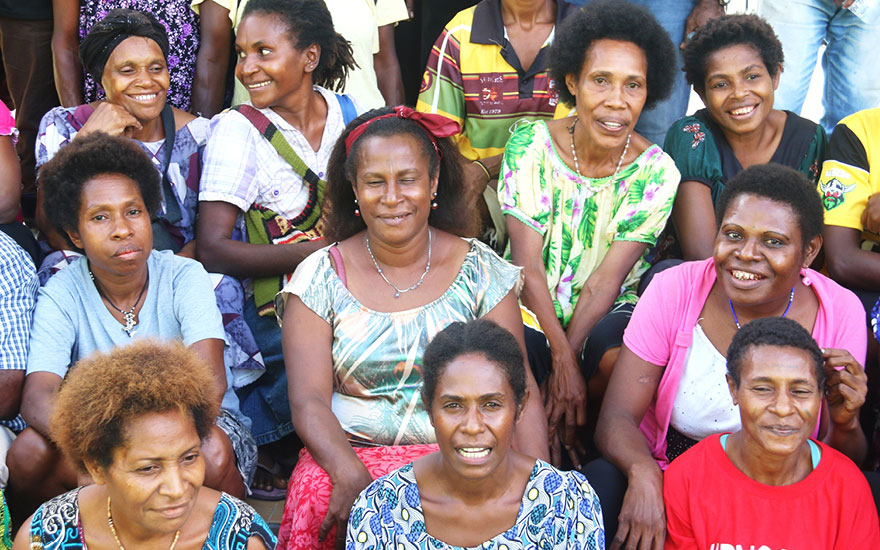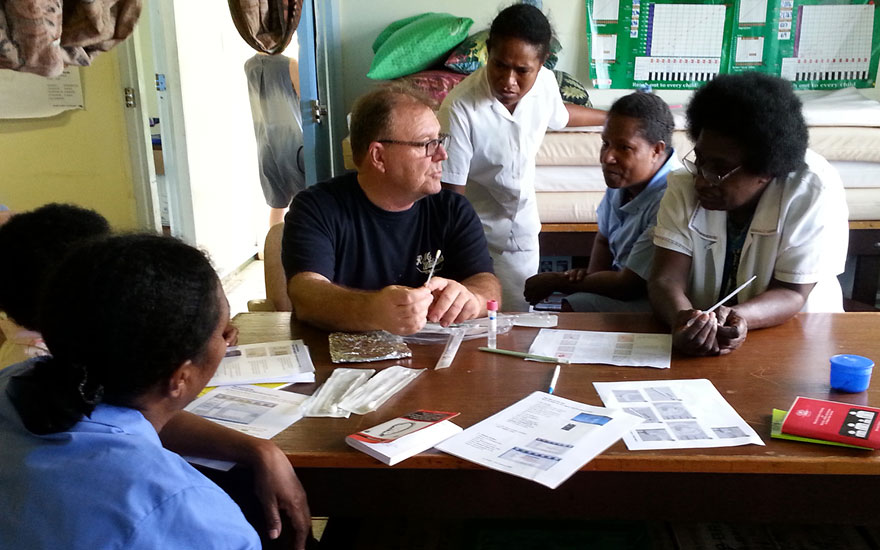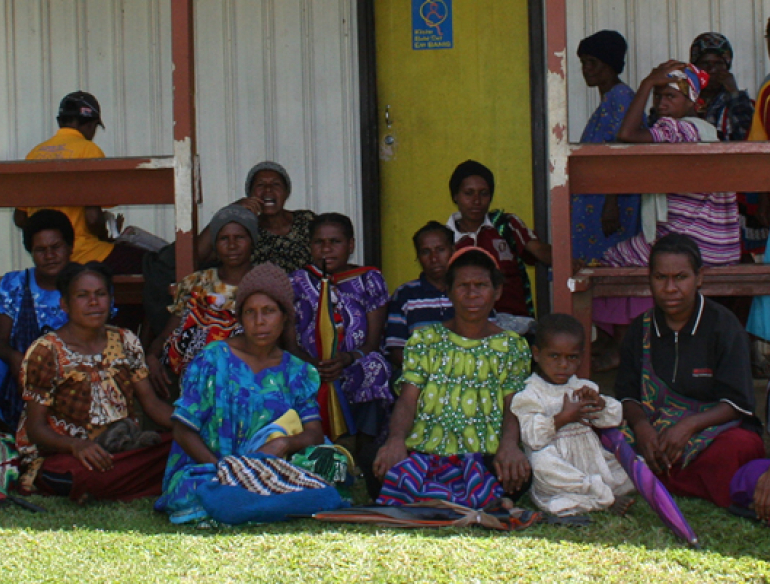Landmark investment will support researchers from the Kirby Institute to co-lead a major new cervical cancer elimination program
The Kirby Institute at UNSW Sydney welcomes the announcement of an AU$8.1 million grant from the Minderoo Foundation to establish a landmark cervical cancer elimination program in the Western Pacific.
This initiative is co-led by the Cancer Council NSW, the Kirby Institute, VCS Foundation, and Family Planning NSW on behalf of the NHMRC Centre of Research Excellence in Cervical Cancer Control (C4), in close collaboration with in-country partners and stakeholders.
The Western Pacific has among the highest rates of cervical cancer in the world, and there are an estimated 1,200 deaths in Papua New Guinea (PNG) alone every year. Human papillomavirus, or HPV, causes almost all cervical cancers worldwide. HPV infection and disease can be prevented by childhood vaccination, whilst screening women for HPV infection in adult life is higly effective in detecting early disease and preventing cervical cancer.
Professor Andrew Vallely leads the Kirby Institute’s engagement in this initiative and said, “this first-of-its-kind humanitarian and research effort builds on more than a decade of collaborative research and partnership working in Papua New Guinea and Vanuatu involving national and provincial health authorities, academic research institutes, medical societies and expert groups, consumer and patient advocates, and most importantly, women, their families and communities.
“Our role at the Kirby is continue working closely with our in-country partners to ensure their incredible dedication, enthusiasm and commitment to cervical cancer prevention over many years is translated into lives saved now and in the future.”
 Community health volunteers, Papua New Guinea
Community health volunteers, Papua New Guinea
Caroline Henao, a cervical cancer survivor, patient advocate and Board Member of the Papua New Guinea Cancer Foundation, said the new initiative would deliver real change in women’s lives. “It would do so much in empowering women to have screening and to know that there is a way forward for them,” she said. “It would also encourage them to know this disease isn't a death sentence but very much curable if detected early.”
The World Health Organization (WHO) has set a target to eliminate cervical cancer as a public health problem globally by the end of the century. This investment will set PNG and Vanuatu on a pathway to elimination, by increasing the number of girls vaccinated against cervical cancer, providing access to cervical screening programs, and ensuring that women with cervical cancer and pre-cancer have access to effective and appropriate care.
Professor Karen Canfell, Director of Cancer Research at Cancer Council NSW said, “this is a landmark initiative for the Western Pacific that over the long term is expected to save the lives of 150,000 women in Papua New Guinea alone. It will lead the world in putting the WHO eliminate cervical cancer strategy into practice, while creating a sustainable framework for attracting additional partners, and a catalyst for cervical cancer elimination globally.”
The initiative will join forces with the Asia Development Bank, industry biotechnology partner Cepheid, and the Frazer Family Foundation (set up by cervical cancer vaccine discoverer, Professor Ian Frazer), with in-kind contributions from the governments of PNG and Vanuatu, to provide almost AU$30 million to set both countries firmly on a path to eliminating cervical cancer.
“A major donation of HPV tests and equipment by Cepheid means we will be able to scale-up the point-of-care HPV testing and treatment services that we have pioneered over the last decade in the Pacific to reach all women aged 30–54 years in Western Highlands Province, Papua New Guinea, and across the whole of Vanuatu,” said Dr Steven Badman from the Kirby Institute, who played a key role in securing this donation in December 2019.
 Dr Steve Badman training health staff in point-of-care testing, Papua New Guinea
Dr Steve Badman training health staff in point-of-care testing, Papua New Guinea
The Eliminate Cervical Cancer in the Western Pacific program
The Eliminate Cervical Cancer in the Western Pacific program is co-led by Professor Karen Canfell at Cancer Council NSW; Professor Andrew Vallely, from the Kirby Institute and PNG Institute of Medical Research; Professor Marion Saville at VCS Foundation; and Professor Deborah Bateson at Family Planning NSW; on behalf of C4 and in close collaboration with in-country partners and stakeholders.
The program was formally launched by Professor Canfell and Professor Vallely from C4 and Dr Steve Burnell from Minderoo, at the Preventing Cervical Cancer Conference (PCC2021) on Friday 26 March, held in partnership with the Asia-Oceania Research Organisation in Genital Infection and Neoplasia (AOGIN) and APEC.
The program will advance the WHO strategy to eliminate cervical cancer as a public health problem globally by the end of the century, based on a ‘triple-intervention’ approach that sets out simple targets to place all countries on the path toward elimination by 2030: the so-called ’90-70-90’ targets – 90% of girls fully vaccinated against human papillomavirus by age 15; 70% of women screened by age 35 years, and again by age 45 years, using a high-precision test for human papillomavirus; 90% of women with cervical pre-cancer and invasive disease managed appropriately and effectively.
